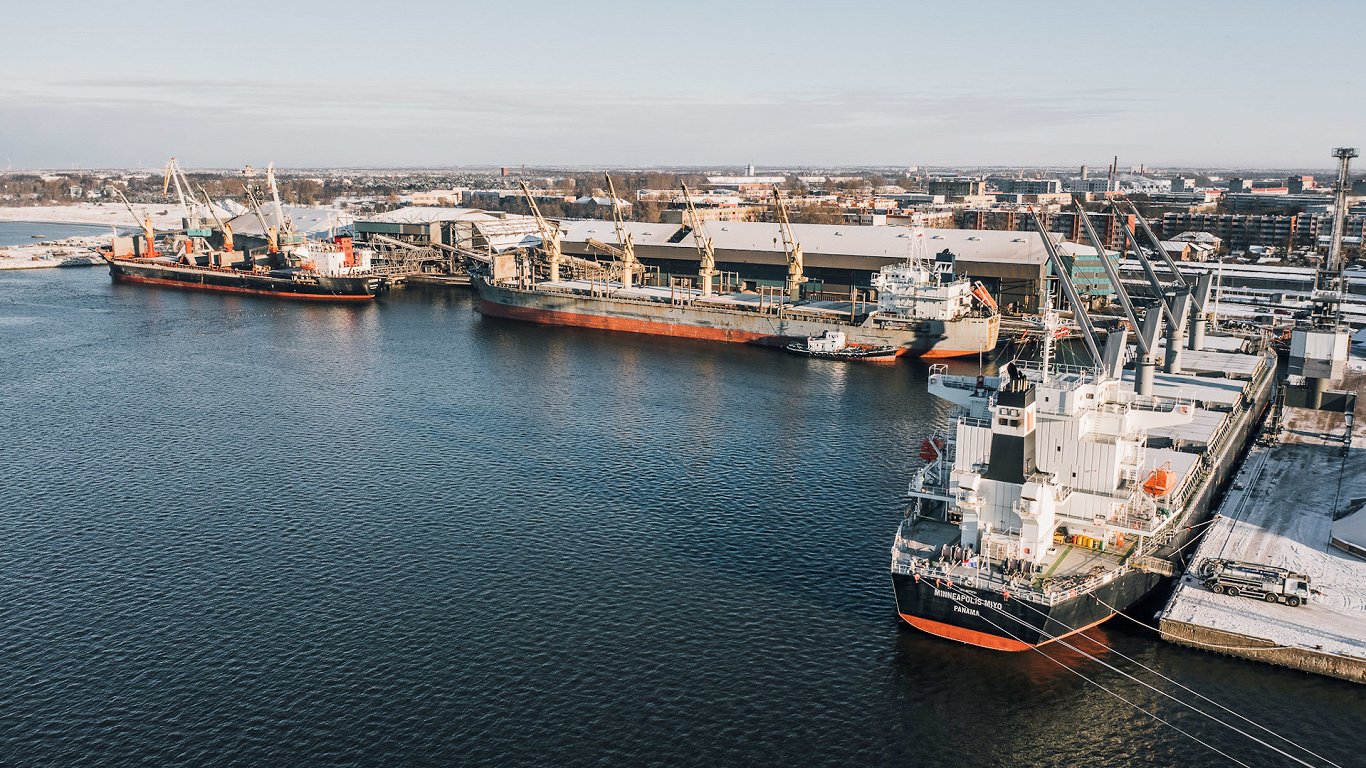Ports
Russia’s military attack on Ukraine will undoubtedly lead to a reduction in trade due to sanctions, says Sirle Arro, Head of Marketing and Communication at the Port of Tallinn. In 2021, the volume of cargo from Russia (mainly liquid bulk and fertilizers) made up 30% of the total cargo volume passing through Tallinn, while the volume of cargo from Belarus was 9%. The port has estimated that the direct impact of closing off Russian goods is, according to 2021 data, €6 million.
As the door to Russia closes, the port believes another one – other trade still flows through Estonia – might open. “Discussions have already begun on the construction of LNG terminals. We have had projects on the table in Muuga Harbor and in Paldiski”, explains Arro. Opportunities are arising from changes in supply chains, too. “We assume that both because of the pandemic and the current crisis, industries are considering moving closer to consumers, and this may open up new opportunities for the Port of Tallinn to find customers in industrial parks as well as in short-sea shipping (ro-ro and container lines)”. In the long run, the port expects Rail Baltica to be completed, which would give a boost to north-south trade.
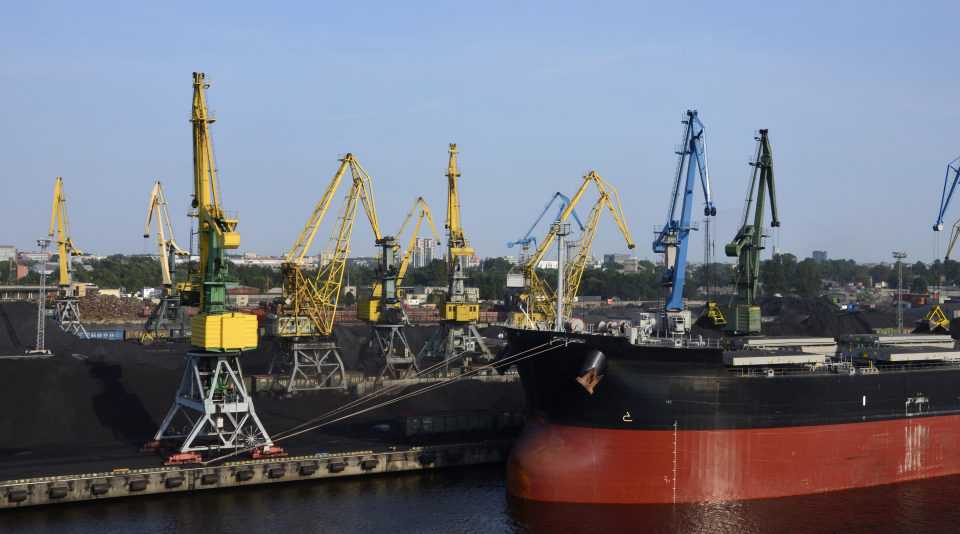
Among the cargos whose flow is cut due to sanctions and restrictions are Belarusian wood materials, Russian fertilizers, and Severstal metal production, according to Ansis Zeltiņš, CEO at the Freeport of Riga. The impact of the ban on Russian and Belarusian lorries from working in the EU can be seen quite clearly. Container deliveries are affected by the decisions of shipping lines not to enter Russian ports, while Western companies are stopping their business in Russia, too. Sales of Russian coal to the EU will come to an end in August. The fact that terminals have previously found niche cargos is a source of hope, however. “Our opportunity in the area is Kazakhstan”, which has increased its activities in finding new transit corridors to Europe as they used to rely on Russian ports in the Black Sea and the Baltic Sea before the war, explains Zeltiņš. The main possibility is Latvia, although you must cross Russia before that. Currently, railway traffic is not impacted in any way. However, if the traffic is stopped completely, the question will arise if Latvia really needs three big ports.
Regarding the possibility to build an LNG terminal, Zeltiņš acknowledges that it is technically possible to do so in Riga Freeport. Connection to an upstream pipeline is another question, and one must consider that the population is usually not keen on fertilizers, oil products, or gas in the port.
Riga Freeport is continuing its work to offer itself as a hub connecting China and Europe. However, trains must cross Russia in this instance too. A decision must also be made on a political level. As in the case of an LNG terminal, it cannot be left completely to the business sector with the government not being involved at all.
Railway
“It will take longer to assess the impact of current sanctions on our operations and performance, but our day-to-day operations are significantly affected, not least because of the extensive additional work required to screen partners, customers, and clients”, says Agnese Līcīte, Press Secretary of Latvian Railway.
On the one hand, the volume of sanctioned cargo segments is zero. On the other hand, the trend of increasing cargo volumes of Central Asia, especially Kazakhstan, as well as container transit from/to Asia, China and even South Korea is continuing. Freight transport globally is undergoing a huge change. For example, the cargo that was previously handled by the Black Sea ports and Russian ports in the Gulf of Finland is now redirected to other transit corridors, including Latvia.
As cargo groups and stakeholders not subject to sanctions are not affected, total cargo volumes have not changed significantly. In case the decision is made to close Latvia’s eastern borders, however, the Latvian Railway will be heavily impacted and the Latvian economy will take a hit, too.
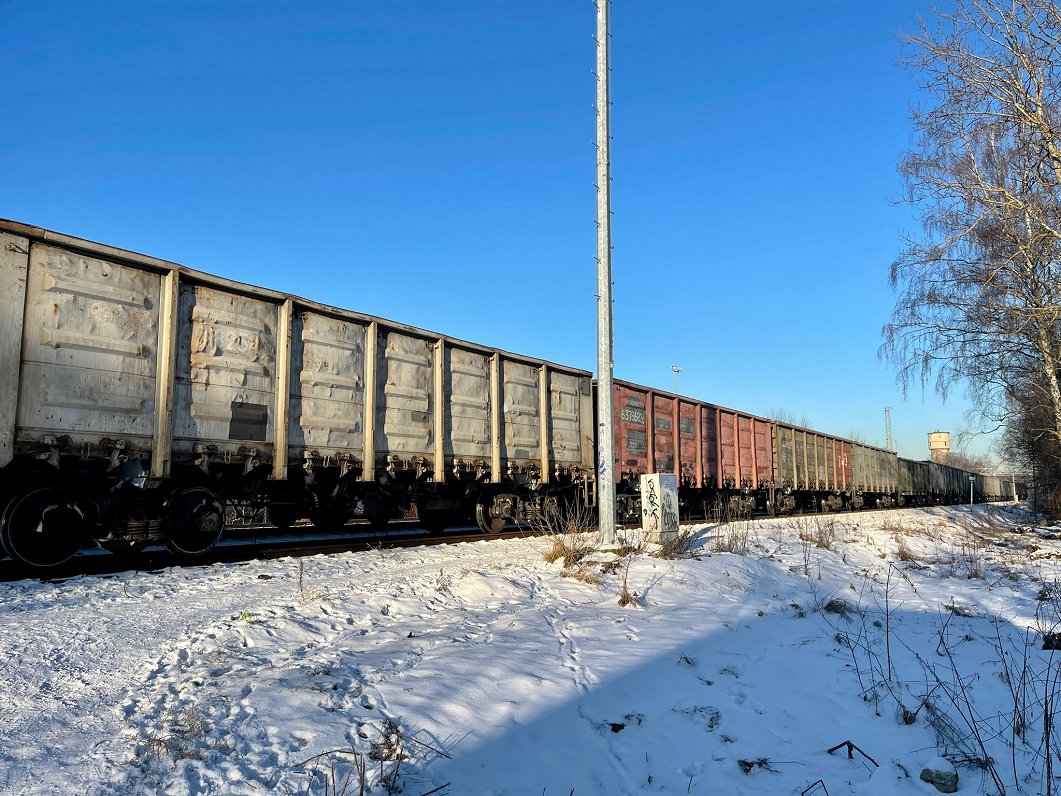
“In 2021, 63% of the total volume of goods we transported came from Russia and 15% came from Belarus. Today, we transport almost no [such] goods. Therefore, it is true to say that the situation is more than serious”, says Raul Toomsalu, CEO of Estonian rail logistics company Operail, explaining the painful result of Russian aggression. This is due to the EU sanctions against owners of large companies. The goods themselves, however, are mostly not sanctioned yet.
As information changes every day, there is a great deal of confusion in the rail cargo business and plans are not easy to make. At the same time, Operail is working on its other projects. “Our local multimodal freight transport service is doing very well. We offer a door-to-door service for Estonian clients who need solutions where rail transport is preceded or followed by road shipping.” Operail is also getting closer to launching the Amber Train – a railway corridor between Lithuania and Estonia for freight transport through the Baltic states. This would help Ukraine in finding a new export corridor to global markets since Russia has blocked Ukrainian ports by the Black and Azov Seas.
Lithuanian Railways might lose approximately half of their cargo this year due to sanctions, according to Lithuanian media.
Road transport
“Russia’s aggression has almost irreversibly altered the supply chains of road freight”, says Zane Plone, PR Director at the Road Transport Administration of Latvia. She predicts that due to the existing and possible sanctions against Russia and Belarus, as well as the backlash from both countries, some of Latvia’s international road haulers (~20%), which mainly focused on road transport to Russia and Belarus, are likely to be forced to stop their business or reduce their fleets. Some companies might use the eastern corridors to connect to Georgia, Armenia, Azerbaijan, Kazakhstan, Uzbekistan, Tajikistan, and Turkmenistan.
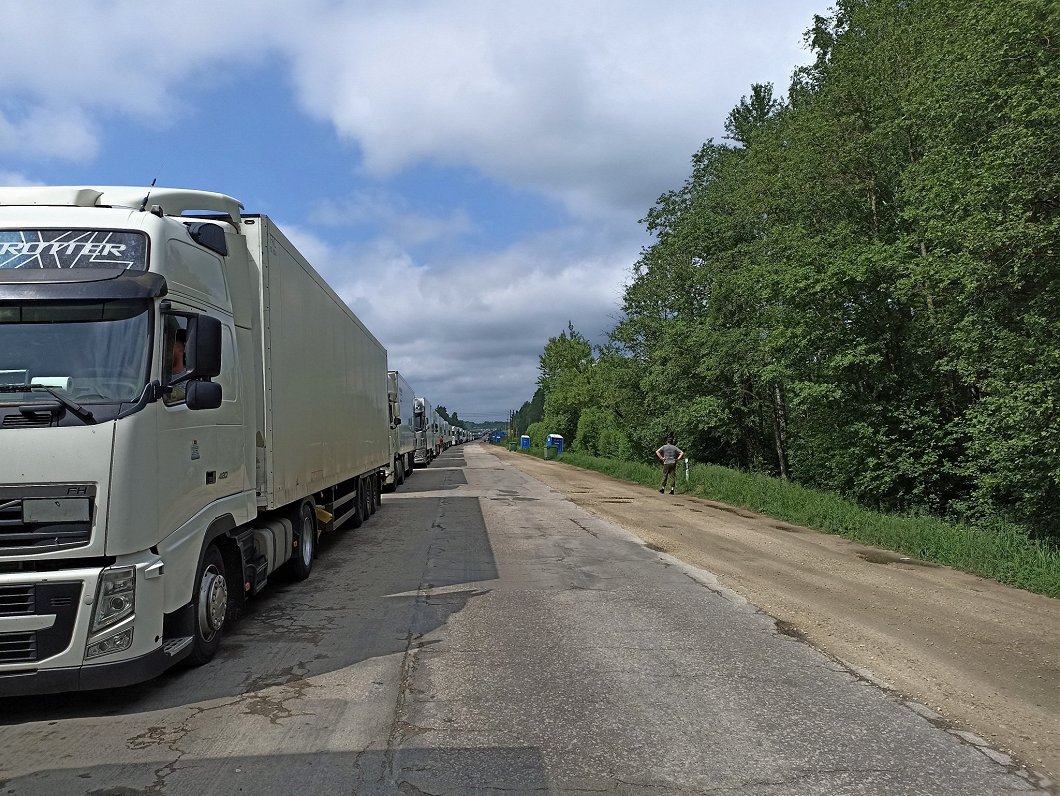
According to a survey of road haulers conducted by the Administration, “several companies are trying to reorient to the regional Baltic market, as demand for certain categories of goods has increased due to the influx of Ukrainian refugees”. However, the shortage of drivers is causing certain problems, as some Ukrainian drivers who worked for Latvian companies have gone to defend their country, while drivers from Russia can no longer receive or extend the documents needed to work in Latvia.
Reorientation is a word that also describes the approach of the Lithuanian company Girteka, which manages the largest company-owned truck fleet in Europe. The company plans to continue its focus on business development in Europe and Scandinavia.
When Russia started hostilities, the company suspended investments in Russia and did not provide services to companies that were under sanctions. “In addition, part of the Eastern business will be separated from Girteka, while independent business plans to focus on cargo transport between other Asian countries (China, Kazakhstan, etc.) and Europe”, explains Simonas Bartkus, Head of Marketing and Communication at Girteka.
Air transport
Russian aggression in Ukraine has left its impression on air travel, too. “In the first week of the war, airBaltic saw an approx. 30% drop in the number of new bookings. The war certainly affected many passengers in Europe”, says Alise Bethere, SVP Corporate Communications at Air Baltic Corporation. The situation has changed since then and a couple of weeks later there was a very small impact remaining on the airline’s bookings, as many passengers continued to plan their summer holidays or business trips. She explains that due to current airspace restrictions, airBaltic is currently unable to serve a total of four routes to Ukraine.
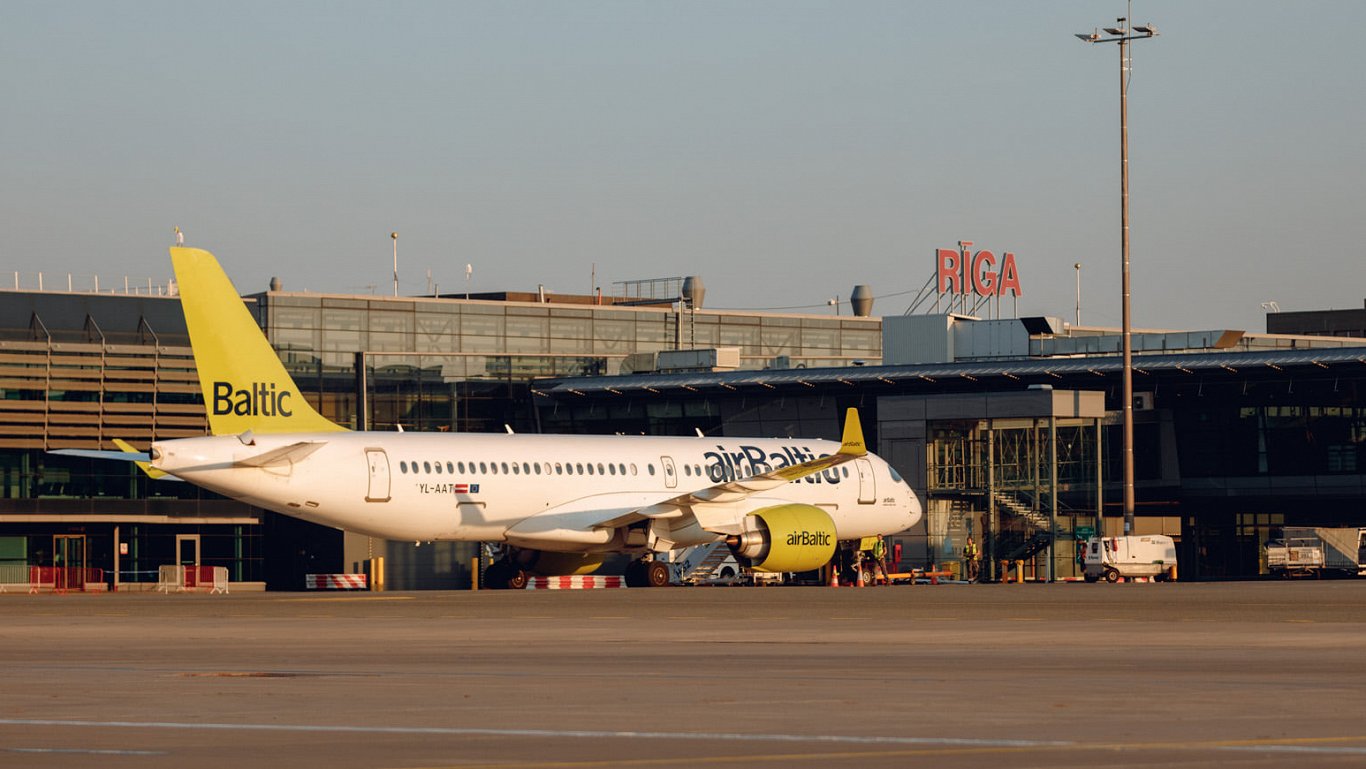
Besides, airBaltic announced in March that it is leaving the Russian market, where it served two routes. The airline had to change Middle East flight routes like to/from Dubai or Tbilisi, although most of the company’s routes are unaffected.
As far as money goes: “The share of revenue that the company had planned in its budget for both the Ukrainian and Russian market amounts to 9% in total. As the war is still ongoing, its total impact is still impossible to assess.” AirBaltic, however, is committed to resuming flights to Ukraine as soon as this is possible.
This article first appeared in Baltic Business Quarterly, published every three months by the German-Baltic Chamber of Commerce (AHK) and is reproduced by kind permission.
